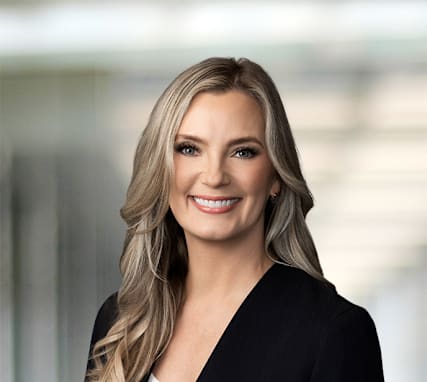Bumble Inc. is first to sign Reed Smith-authored amicus brief in Zurawski v. Texas
The brief, which was filed in support of the plaintiffs in Zurawski v. Texas, has received strong backing from the Texas business community. Austin-based Bumble Inc., founded by entrepreneur Whitney Wolfe Herd and parent company to numerous social connection apps including Bumble, Bumble for Friends, and Badoo, was the first business to sign onto the brief.
“As a multinational, publicly traded tech company led by many women, we feel it’s our duty not just to provide our workforce with access to reproductive health care, but to speak out – and speak loudly – against the retrogression of women’s rights,” said Whitney Wolfe Herd, founder and CEO of Bumble Inc. “Texas’s confusing medical exceptions increase business costs, drive away talent, and threaten workforce diversity and well-being. We must unequivocally support equal rights for our employees and customers to make their own reproductive choices.”
Other signatories to the brief include Amalgamated Bank; Argent; ATX Television Festival; Biscuit Home; Blue Sky Partners; Brentwood Social House; Central Ceremonies; Central Presbyterian Church; CHA Law Group, PC; Civitech; Doctors for Fertility; Eco-Stylist; Elevate Bartending; Good Work Austin; Goodnight Hospitality; GSD&M; HarbourView Equity; KraveBeauty; L’Oca D’Oro; Layfield Law Practice; MaieB Hospitality; Match Group, LLC; Natalie Crawford, MD; Pershing Management; Plant Cowboy; Present Tense Hospitality; Schoox, Inc.; Schwartz Immigration Law, PLLC; Shannon Clark, MD; Small Business Majority; Storable, Inc.; South by Southwest (SXSW); Texas Prestige Landscape Co.; The Draper Law Firm; The Goodking Co.; The Riveter; and Zilker Properties.
Additionally, several Texas businesspersons signed on as individuals, including two physicians, a lawyer and an executive. In all, the signatories to this amicus brief represent a diverse array of interests from the health care, banking, investment, hospitality, restaurant, real estate, consulting, advertising, legal, entertainment, technology, horticulture, faith, fashion and beauty industries and communities across Texas.
The Reed Smith brief details how an uncertain and confusing Texas regulatory environment is creating professional and personal difficulties for those who work and travel in Texas, as well as adversely impacting employee recruitment and retention, and creating obstacles for attracting new businesses, visitors and events.
“The so-called ‘medical exceptions’ under Texas’s abortion bans are narrow and ambiguous, and place untenable burdens on women and their health care providers,” said Reed Smith partner Sarah Cummings Stewart, who leads the pro bono legal team that prepared the amicus brief. “Doctors treating pregnant women with dangerous health complications are being forced to gamble with their own lives due to the lack of clarity in the laws and the stiff penalties if they guess wrong. And as a result, women and businesses are literally fleeing the state, and others are staying far away from these cruel and unjust laws.”
According to the brief, a surge of companies, workers and students are currently either choosing to leave the state, helping others leave and/or devising methods for alternative health care.
The brief includes several examples of people and businesses impacted by this growing trend, including a native Texan attorney and her oil worker husband who recently moved to Colorado; a woman from out of state who turned down a job with a Texas-based renewable energy company; companies that have offered to relocate their Texas-based employees; a California-based engineer for a leading oil-and-gas company who refused to relocate to Houston because he and his wife “find it medically unsafe to carry a pregnancy in Texas;” and a major conference that vowed never to return to Texas because of these laws.
Tragically, the brief also spotlights a longtime Texas maternal-fetal medicine specialist who moved to Massachusetts after he was prevented from treating a pregnant woman who suffered irreparable health consequences from being forced to carry twins with a fatal diagnosis.
The brief further notes several troubling statistics, including that:
- 44% of young women in Texas are considering, or making plans, to move to a state with comprehensive reproductive health care protections.
- 65% of college-educated workers nationwide say they will not consider a job in a state where politicians are trying to restrict reproductive health care rights.
As noted in a recent report from the Institute for Women’s Policy Research, “Women’s participation and advancement in the workforce is key to creating a positive business environment and spurring economic growth.”
However, according to the brief, “the confusing and restrictive statutory scheme limiting reproductive health care is having, and will continue to have, detrimental impacts on the state’s economy, its businesses and the diversity of its workforce.”
While the brief is focused on the negative economic impacts of Texas abortion laws, the case of Zurawski v. Texas is focused on clarifying their many underlying uncertainties. Specifically, plaintiffs seek guidance on when physicians may, without fear of penalty, provide medical care to pregnant women facing potentially life-threatening health complications.
“The lower court already determined the laws’ exceptions were too narrow and confusing, and issued an injunction allowing doctors to exercise their judgment to determine when an abortion is medically necessary for their patients, and we believe that decision should be affirmed,” said Stewart.
The Texas Supreme Court will hear oral argument in Zurawski v. Texas in one week, on Tuesday, Nov. 28, and the hearing will be webcast live by the State Bar of Texas.
About Reed Smith
Reed Smith is a dynamic international law firm dedicated to helping clients move their businesses forward. With an inclusive culture and innovative mindset, we deliver smarter, more creative legal services that drive better outcomes for our clients. Our deep industry knowledge, long-standing relationships and collaborative structure make us the go-to partner for complex disputes, transactions and regulatory matters. Now celebrating more than 145 years of service, our firm spans 31 offices with 3,000 people, including 1,700 lawyers.
For more information, please visit reedsmith.com.


